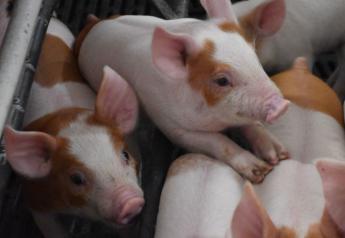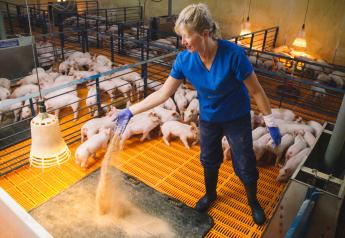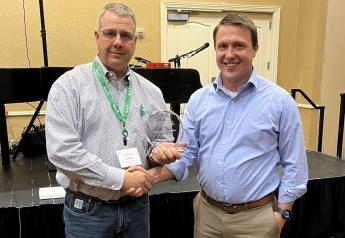Better Access to Cancer Care May Reduce Rural and Urban Disparities

When enrolled in a cancer clinical trial, the differences in survival rates between rural and urban patients are significantly reduced, SWOG study results show. SWOG is a global cancer research community that designs and conducts publicly funded clinical trials. It is funded by the National Cancer Institute.
The study results are published in JAMA Network Open by a team led by Joseph Unger, PhD, a SWOG biostatistician and health services researcher at Fred Hutchinson Cancer Research Center. It’s the first study to comprehensively compare survival outcomes in rural and urban cancer patients enrolled in clinical trials.
The results cast new light on decades of research, which paints a stark picture of cancer disparities. About 19% of Americans live in rural areas, and studies have shown that, when faced with cancer, rural patients don’t live as long as urban cancer patients. For example, statistics published by the federal Centers for Disease Control and Prevention in 2017 show a significant difference in the rate of cancer deaths, with 180 people out of 100,000 dying of cancer in rural areas compared with 158 people out of 100,000 dying of cancer in urban areas between 2011 and 2015.
But the new analysis indicates that this difference in survival is not due to patients – but to the care they receive.
“These findings were a surprise, since we thought we might find the same disparities others had found,” Unger said. “But clinical trials are a key difference here. In trials, patients are uniformly assessed, treated, and followed under a strict, guideline-driven protocol. This suggests that giving people with cancer access to uniform treatment strategies could help resolve the disparities in outcomes that we see between rural and urban patients.”
Unger and SWOG member Dr. Banu Symington, an oncologist who practices at the Sweetwater Regional Cancer Center in rural Idaho, received a grant from SWOG’s public charity, The Hope Foundation, to study cancer disparities by analyzing existing data from the group’s trials. The team had a big trove of data to mine. Founded in 1956, SWOG has run more than 1,400 cancer clinical trials enrolling nearly 215,000 patients.
Unger and his team identified 36,995 patients who enrolled in 44 SWOG phase II or III treatment trials between 1986 and 2012. Patients hailed from all 50 states, and had 17 different cancer types, including acute myeloid leukemia, sarcoma, lymphoma, myeloma, and brain, breast, colorectal, lung, ovarian, and prostate cancers. The team limited their analysis of survival to the first five years after trial enrollment to emphasize outcomes related to cancer and its treatment.
Using U.S. Department of Agriculture population classifications known as Rural-Urban Continuum Codes, the team categorized the patients as either rural or urban and analyzed their outcomes. Patient outcomes included overall survival, or how long patients lived; progression-free survival, or how long patients lived before their cancer returned; and cancer-specific survival, or how long the patients lived without dying of cancer. The team used a statistical model known as a multivariate Cox regression to analyze their data.
This method allows investigators to examine the relationship between survival and one or more predictor values, such as the age of the patient or the stage of their cancer.
No matter the variable, or the cancer type, results were clear. There was no meaningful difference in survival patterns between rural and urban patients for almost all of the 17 different cancer types. The only exception was patients with estrogen receptor-negative, progesterone receptor-negative breast cancer. Rural patients with this cancer didn’t live as long as their urban counterparts, a finding the team says could be attributed to a few factors, including timely access to follow-up chemotherapy after their first round of cancer treatment.
“If people diagnosed with cancer, regardless of where they live, receive similar care and have similar outcomes, then a reasonable inference is that the best way to improve outcomes for rural patients is to improve their access to quality care,” Unger said.
Unger noted that the NCI Community Oncology Research Program (NCORP) – which funded his study – brings clinical trials into community hospitals and clinics, including in rural areas, and represents the community-level outreach that can provide the quality cancer care that may be needed. In 2014, NCI officials broadened NCORP eligibility to include oncology practices that serve large rural populations. Currently, there are NCORP sites in 13 states in which the rural population exceeds 30% – Alaska, Ark., Iowa, Ky., Miss., Mont., N.C., N.D., S.C., S.D., Tenn., Wis., and Wyo. The result is that tens of thousands of rural cancer patients can enroll in NCI clinical trials and be cared for right at their local hospital and clinic.
“The goal of this expansion was to provide access and test interventions to reduce disparities by improving the quality of care across the cancer continuum among rural populations,” said Worta McCaskill-Stevens, MD, chief of the Community Oncology and Prevention Trials Research Group at NCI. “Clinical trials provide access to high quality care, and NCORP sites bring trials to people where they live.”
Along with Unger and Symington, the SWOG study team includes Anna Moseley, MS, of the SWOG Statistics and Data Management Center at Fred Hutch; Mariana Chavez- MacGregor, MD, of the University of Texas MD Anderson Cancer Center; Scott Ramsey, MD, from the Public Health Sciences Division at Fred Hutch; and Dawn Hershman, MD, of the Herbert Irving Comprehensive Cancer Center at NewYork- Presbyterian/Columbia University Irving Medical Center.
Editor’s Note: The National Institutes of Health funded the study through National Cancer Institute grant 5UG1CA189974. The Hope Foundation also provided support. SWOG was founded in 1956, and is a member of the National Cancer Institute’s National Clinical Trials Network and the NCI Community Oncology Research Program, making it part of the oldest and largest publicly funded cancer research network in the United States. SWOG has over 12,000 members in 47 states and six countries who design and conduct cancer prevention and treatment trials. SWOG trials have led to the approval of 14 cancer drugs, changed more than 100 standards of cancer care, and saved more than 3 million years of human life. Learn more at swog.org.







